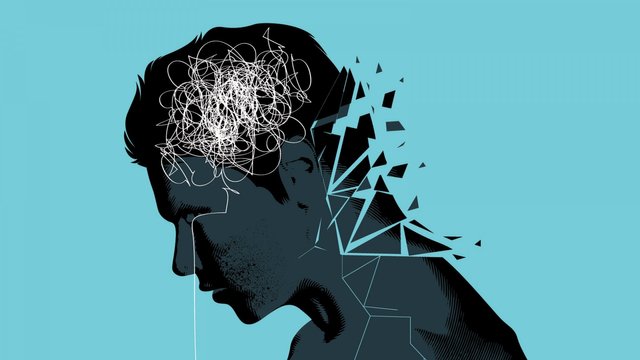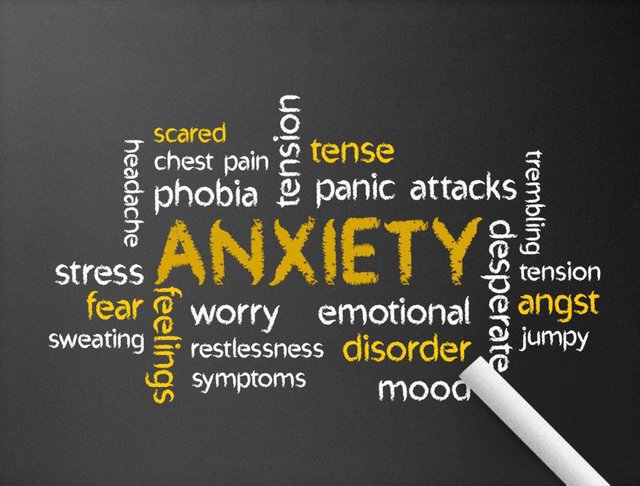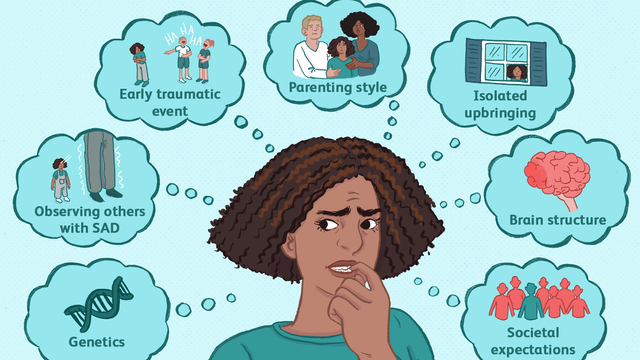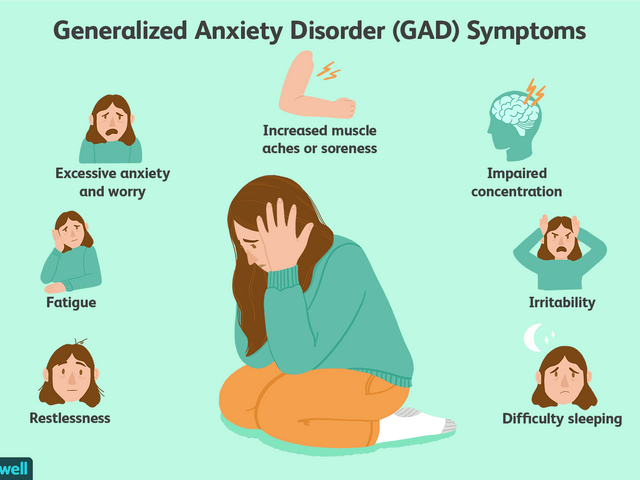CONTEST: "INSPIRING WORDS" // ANXIETY BY @SAHMIE
WHAT IS ANXIETY
The American Psychological Association (APA) defined anxiety as "an emotion characterized by feelings of tension, worried thoughts and physical changes like increased blood pressure ."
Anxiety can said be a normal and often healthy emotion as it part of human survival from danger. When an individual faces potentially harmful or worrying triggers, feelings of anxiety are not only normal but necessary for survival.
However, when a person regularly feels disproportionate levels of anxiety, it might become a medical condition know as Anxiety Disorder
WHAT IS ANXIETY DISORDER
According to APA, Anxiety disorder is when a person keeps having recurring intrusive thoughts or concerns. Once anxiety reaches the stage of a disorder, it can interfere with daily function.
SYMPTOMS OF ANXIETY
How can one know he/she is having an anxiety disorder? Like every other health issues anxiety disorder comes with its own symptoms, which includes;
- restlessness, and a feeling of being “on-edge”
- Uncontrollable feelings of worry
- Increased irritability
- Concentration difficulties
- Sleep difficulties, such as problems in falling or staying asleep
The above mentioned are things we experience on a daily basis, but those with anxiety disorder will experience them to persistent or extreme levels.
TYPES OF ANXIETY DISORDER
 source
source
Diagnosis have proved that there are more than one type of anxiety disorder, which includes;
GENERALIZED ANXIETY DISORDER:
Popularly known as GAD, is the most common of them all. This is a chronic disorder involving excessive, long-lasting anxiety and worries about nonspecific life events, objects, and situations.
PANIC DISORDER (PD):
 source
source
These are brief/sudden attacks of intense terror/fear. Which may lead to shaking, confusion, dizziness, nausea, and breathing difficulties. PD usually occur after frightening experiences or prolonged stress but may also occur without a trigger.
SPECIFIC PHOBIA:
This is the fear and avoidance of a particular object or situation. Phobias are not like other anxiety disorders, as they relate to a specific cause. Triggers for a phobia range from situations and animals to everyday objects.
SELECTIVE MUTISM:
This is a form of anxiety that children experience, in which they are not able to speak in certain places or contexts, such as school, even though they may have excellent verbal communication skills around familiar people.
SOCIAL ANXIETY DISORDER:
 source
source
This is a fear of negative judgment from others in social situations or of public embarrassment. Social anxiety disorder includes a range of feelings, such as stage fright, a fear of intimacy, and anxiety around humiliation and rejection.
This disorder can cause people to avoid public situations and human contact to the point that everyday living is rendered extremely difficult.
TREATMENTS
Treatments can be a combination of psychotherapy, behavioral therapy, and medication.
For a self treatment, one is advised to;
- Learning to manage stress
- Maintain a positive attitude
- Talk to someone
- Listen to good music
- Partake in exercises
- Learn to meditate
- Keep Healthy habits etc
There are also medications to take under the guard of a physician, such drugs includes; - Benzodiazepines
- Antidepressants
- Tricyclics
PREVENTION
Instead of treating, why not prevent it from happening, like the saying
"Prevention is better than treatment."
One can prevent by;
- Reducing the intake of caffeine , tea, cola, and chocolate.
- Maintain a healthy diet.
- Keep a regular sleep pattern.
- Avoid alcohol, cannabis, and other recreational drugs.
N/B Anxiety itself is not a medical condition but a natural emotion that is vital for survival when an individual finds themselves facing danger
But like the saying goes, "Excess of everything is bad."
REFERENCES
Thank you to my real MVPs✌




Hola amiga, muchas gracias por tu entrada y por dejar las fuentes de la información. Saludos!! :)